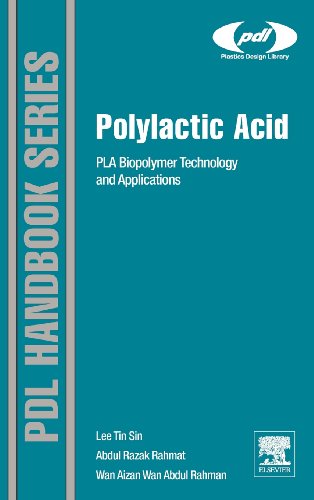

Most ebook files are in PDF format, so you can easily read them using various software such as Foxit Reader or directly on the Google Chrome browser.
Some ebook files are released by publishers in other formats such as .awz, .mobi, .epub, .fb2, etc. You may need to install specific software to read these formats on mobile/PC, such as Calibre.
Please read the tutorial at this link: https://ebookbell.com/faq
We offer FREE conversion to the popular formats you request; however, this may take some time. Therefore, right after payment, please email us, and we will try to provide the service as quickly as possible.
For some exceptional file formats or broken links (if any), please refrain from opening any disputes. Instead, email us first, and we will try to assist within a maximum of 6 hours.
EbookBell Team

5.0
48 reviewsPolylactic Acid (PLA) is the first viable thermoplastic that can be produced from a plant-based feedstock such as corn or sugar cane, and yet be processed by the conventional melt processing technologies. At the same time, Polylactic Acid is produced at the largest industrial scale of all biodegradable polymers. It is being used in biomedical applications, for bottle production and in compostable food packaging. It is also being evaluated as a material for tissue engineering. Mass production has tremendously reduced the cost of PLA production, making it an economically viable choice for fabrication of domestic containers, plastic bags, and fibers. Commercial-scale plants today produce hundreds of thousand tons of PLA per year.
This book provides a practical guide for the engineers and scientists involved in working with PLA and developing the many new products that are emerging for this important biopolymer. The current market situation for PLA and biodegradable polymers is described as well as applications across a range of market sectors, and the mechanical, chemical, thermal, rheology, and degradation properties of PLA.